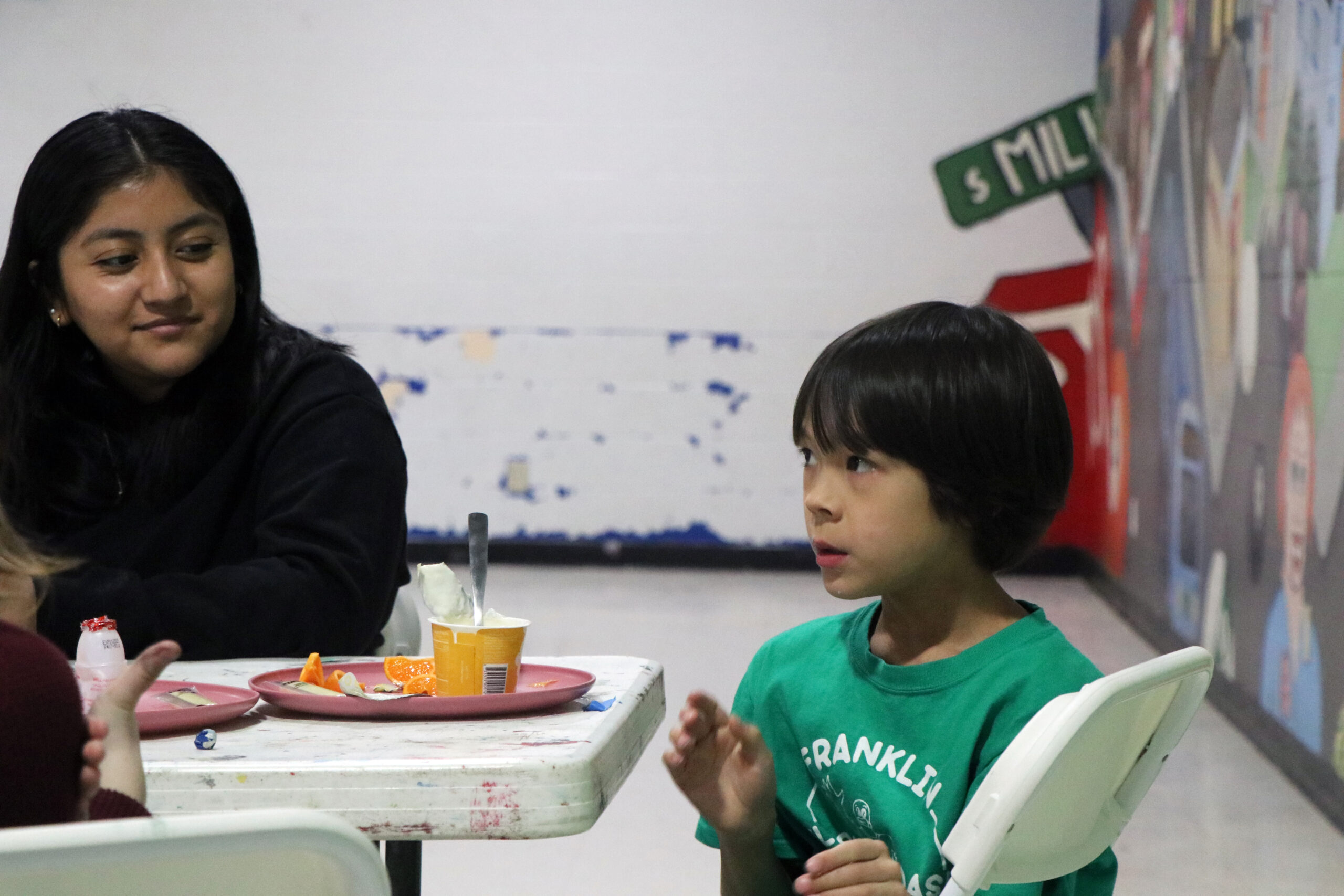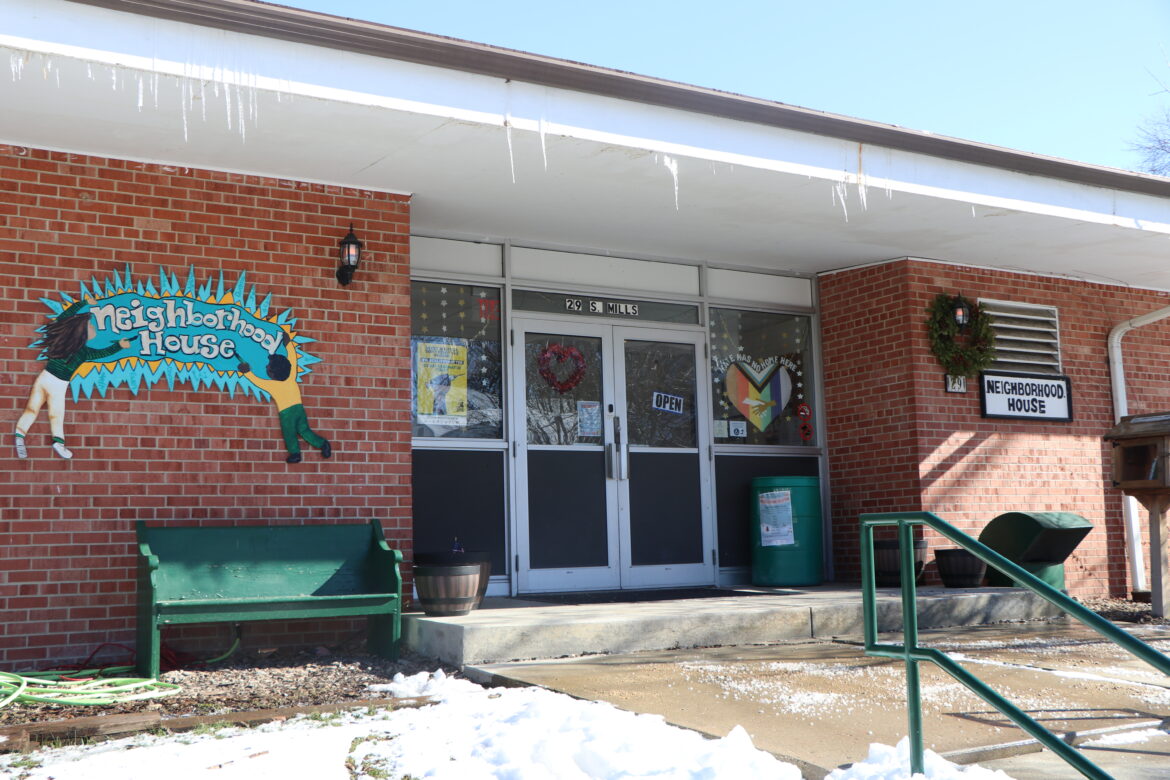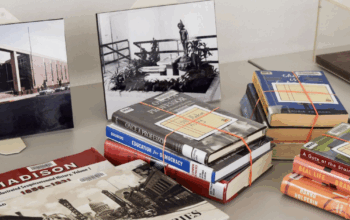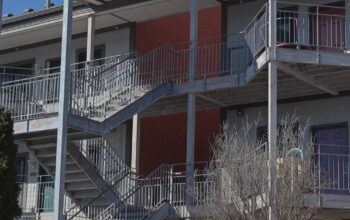Amiyah and Yahynis wanted to create a fort so they covered the tent in the game room with blankets. They teased each other and played with the pillows until snack time. After a snack of oranges, yogurt and pretzels, they went to play in the park.
This is a daily routine for Amiyah, Yahynis and many other students who attend the Neighborhood House after-school program.
Hidden in the Greenbush neighborhood across the street from McDonald’s is Madison’s first and oldest community center, called the Neighborhood House.
Neighborhood House fills a gap in the community and meets the needs of more than 1,000 community members a month through their programs and services, according to executive director Laura Gundlach.
At its founding in 1916, Neighborhood House focused on being a source for the immigrant community. It offered classes on citizenship, English and how to find good health services, but has since expanded to provide day care, adult classes and a space to meet. The initial concept for Neighborhood House came out of a paper UW graduate in the 1910’s advocating for the construction of a settlement house to serve Maduison’s impoverished Greenbush Neighborhood, which was built on coke ash from a nearby power plant.
It has grown significantly since then and is poised to expand in the coming months, more than doubling its space. The current building, which has housed the center since 1965, is old and has failing mechanics. It can no longer meet the needs of the center’s programming, said Neighborhood House Board of Directors President Sam Brown.
“Currently, the biggest impediment to expanding our programming and services to help more people is the facility itself,” he said.
In 2019 the center began a series of visioning sessions with neighborhood and NHCC user stakeholders to imagine what a new NHCC could look like. Out of these meetings we drafted a Request for Proposals, RFP, proposing the construction of a new building on the NHCC site that would include both a new NHCC facility as well as affordable housing.
The center released this RFP in September of last year and are still working on choosing a developer for the project, Brown said.
Programs and Services
Neighborhood House has programs for people of all ages, including many kids programs.
Gundlach said the offerings of Neighborhood House can be split into two categories— programs including tax prep and a Legal Aid clinic, and services including food pantries, community meals and bus pass handouts.
“And generally when we’re planning a program, like a new one, or looking at the ones that we already have, we’re thinking about filling a need in this community, or close by community or the broader Madison community,” Gundlach said.
For example, Gundlach said there are not many free after school programs, so they host young elementary kids after school for free. The kids can come play in the gym, listen to an educational enrichment program and have snacks.
Many kids also play in the game room. Harper and Niko, two fourth graders, like to play Mancala. They move marbles on a wood tray, and the person with the most marbles in their tray wins the game.
The primary service that Neighborhood House offers is its food pantry. It is open every day for a few hours, and it also offers hot meals every Wednesday, and take and bake community meals once a month.
Neighborhood House is one of the oldest charities in the state and started as a “settlement house” a kind of facility that was common in the late 1800’s to “Americanize” immigrants, primarily Jews and Italians.
These facilities offered language classes and skill classes and childcare.
The center also offers a free legal aid clinic and tax preparation and partners with Community Justice Inc. It offers consultation on civil issues such as family law which includes divorce, and child support and small claims and immigration, said Sam Brown, president of the Neighborhood House board of directors.
“Clients bring questions and concerns. Sometimes they return each month or an attorney could choose to represent them. Each month 12 individuals are served. We are currently limited by the number of attorneys available to help us with this program so it caps it at 12,” he said.
Neighborhood House does not currently offer English classes. But Gundlach said many diverse groups gather at Neighborhood House anyway. It collaborates with a lot of people from Nepal, the African Association in Madison, and the Japanese drumming group comes to many of its events.
Partnerships and Volunteers
In addition to these groups, Neighborhood House partners with many other groups in the community through which it receives funding from grants and donations. These partnerships help Neighborhood House to provide all of its programs and services for free.
Without its volunteers, Neighborhood House could not offer any of these services. It has 15 staff members but only three are full time.They have more than 50 volunteers a month.
Most of its volunteers are students. Student groups will use the space at Neighborhood House, then volunteer their time for kids programs.
Neighborhood House has a strong connection with UW, according to Gundlach. In addition to encouraging student volunteers, staff also encourages students to come to its programs. Students come to yoga classes, events like movie nights and to the food pantry.
“We try to maintain a pretty strong connection with UW because we're so close,” Gundlach said.










